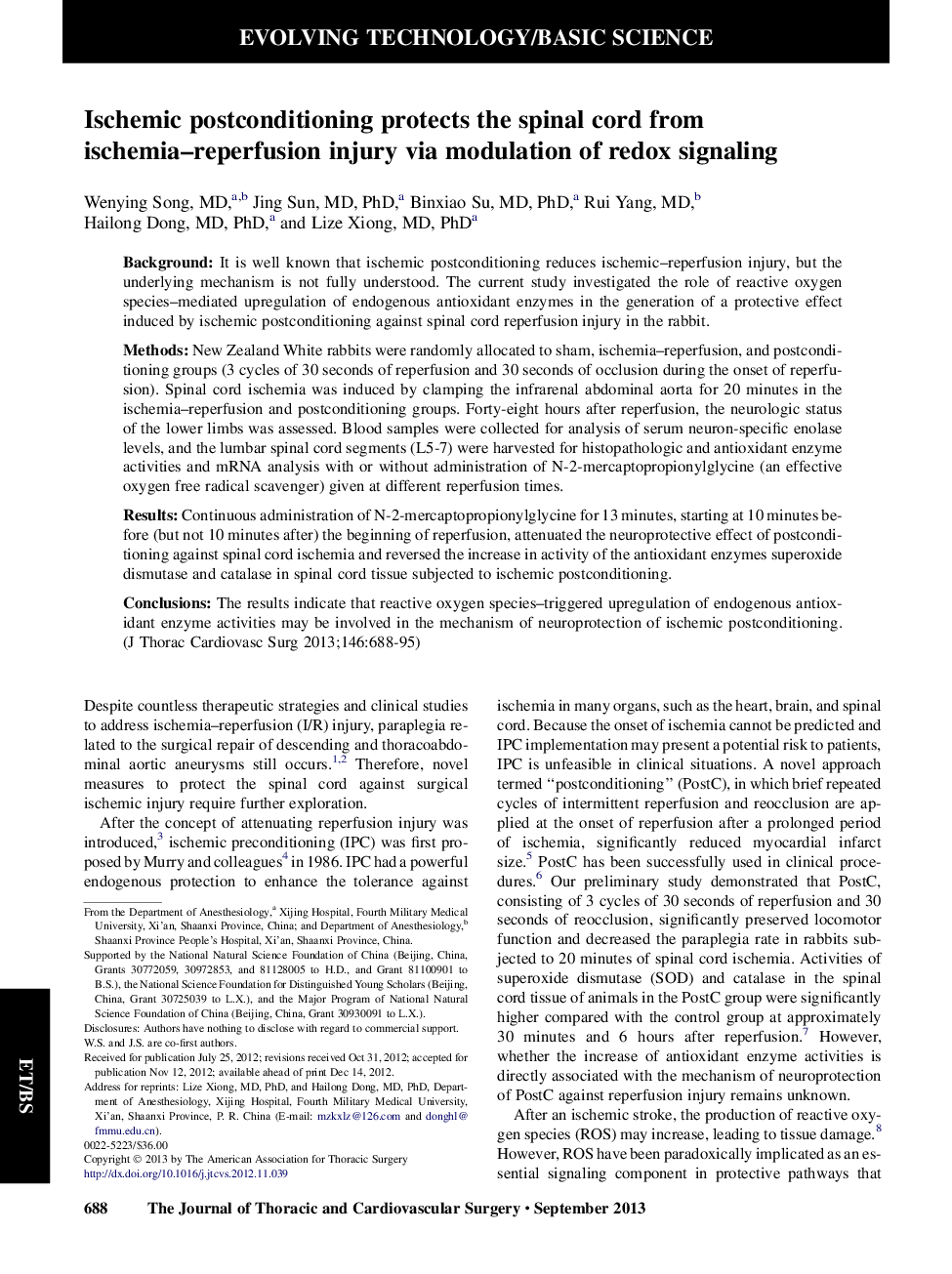| کد مقاله | کد نشریه | سال انتشار | مقاله انگلیسی | نسخه تمام متن |
|---|---|---|---|---|
| 5990145 | 1578619 | 2013 | 8 صفحه PDF | دانلود رایگان |
BackgroundIt is well known that ischemic postconditioning reduces ischemic-reperfusion injury, but the underlying mechanism is not fully understood. The current study investigated the role of reactive oxygen species-mediated upregulation of endogenous antioxidant enzymes in the generation of a protective effect induced by ischemic postconditioning against spinal cord reperfusion injury in the rabbit.MethodsNew Zealand White rabbits were randomly allocated to sham, ischemia-reperfusion, and postconditioning groups (3 cycles of 30 seconds of reperfusion and 30 seconds of occlusion during the onset of reperfusion). Spinal cord ischemia was induced by clamping the infrarenal abdominal aorta for 20 minutes in the ischemia-reperfusion and postconditioning groups. Forty-eight hours after reperfusion, the neurologic status of the lower limbs was assessed. Blood samples were collected for analysis of serum neuron-specific enolase levels, and the lumbar spinal cord segments (L5-7) were harvested for histopathologic and antioxidant enzyme activities and mRNA analysis with or without administration of N-2-mercaptopropionylglycine (an effective oxygen free radical scavenger) given at different reperfusion times.ResultsContinuous administration of N-2-mercaptopropionylglycine for 13 minutes, starting at 10 minutes before (but not 10 minutes after) the beginning of reperfusion, attenuated the neuroprotective effect of postconditioning against spinal cord ischemia and reversed the increase in activity of the antioxidant enzymes superoxide dismutase and catalase in spinal cord tissue subjected to ischemic postconditioning.ConclusionsThe results indicate that reactive oxygen species-triggered upregulation of endogenous antioxidant enzyme activities may be involved in the mechanism of neuroprotection of ischemic postconditioning.
Journal: The Journal of Thoracic and Cardiovascular Surgery - Volume 146, Issue 3, September 2013, Pages 688-695
